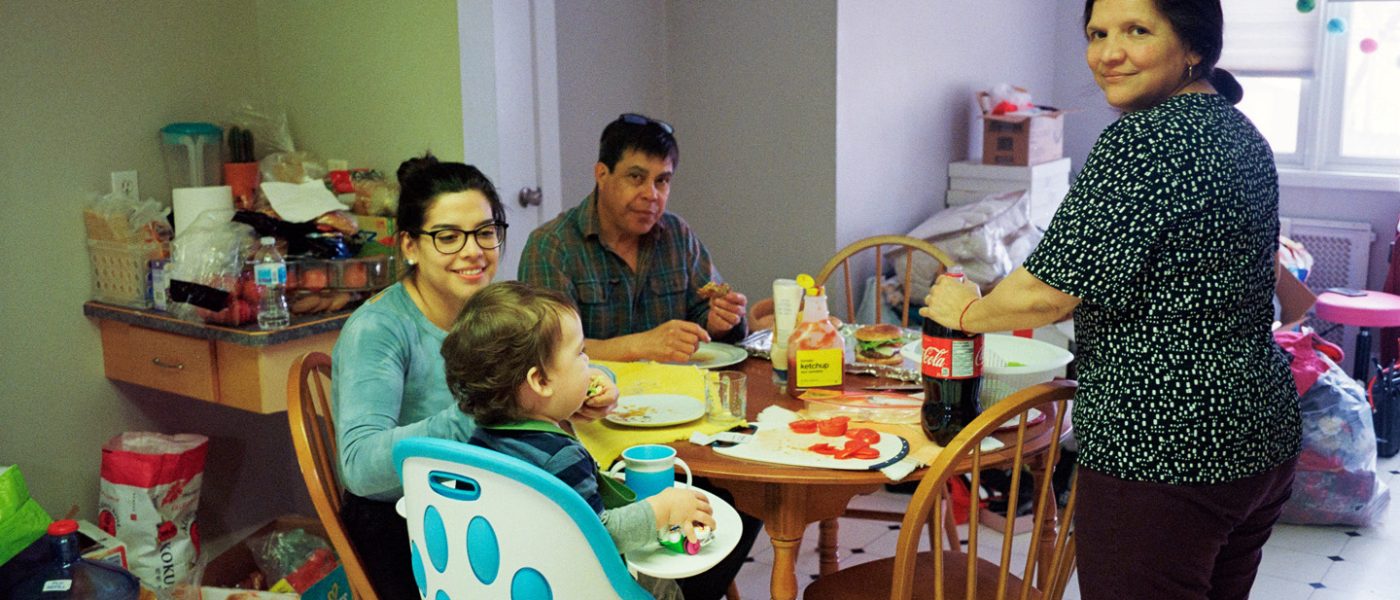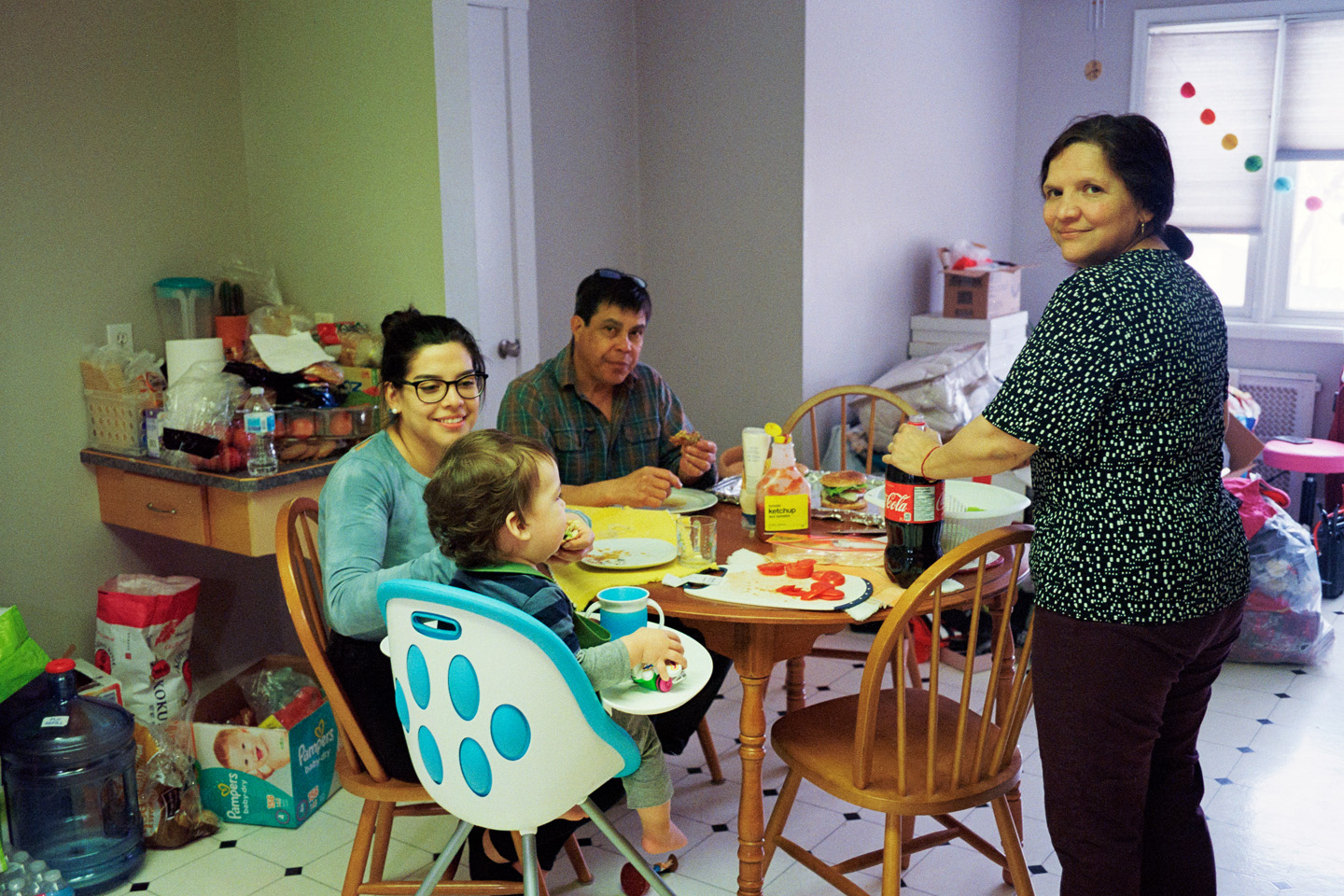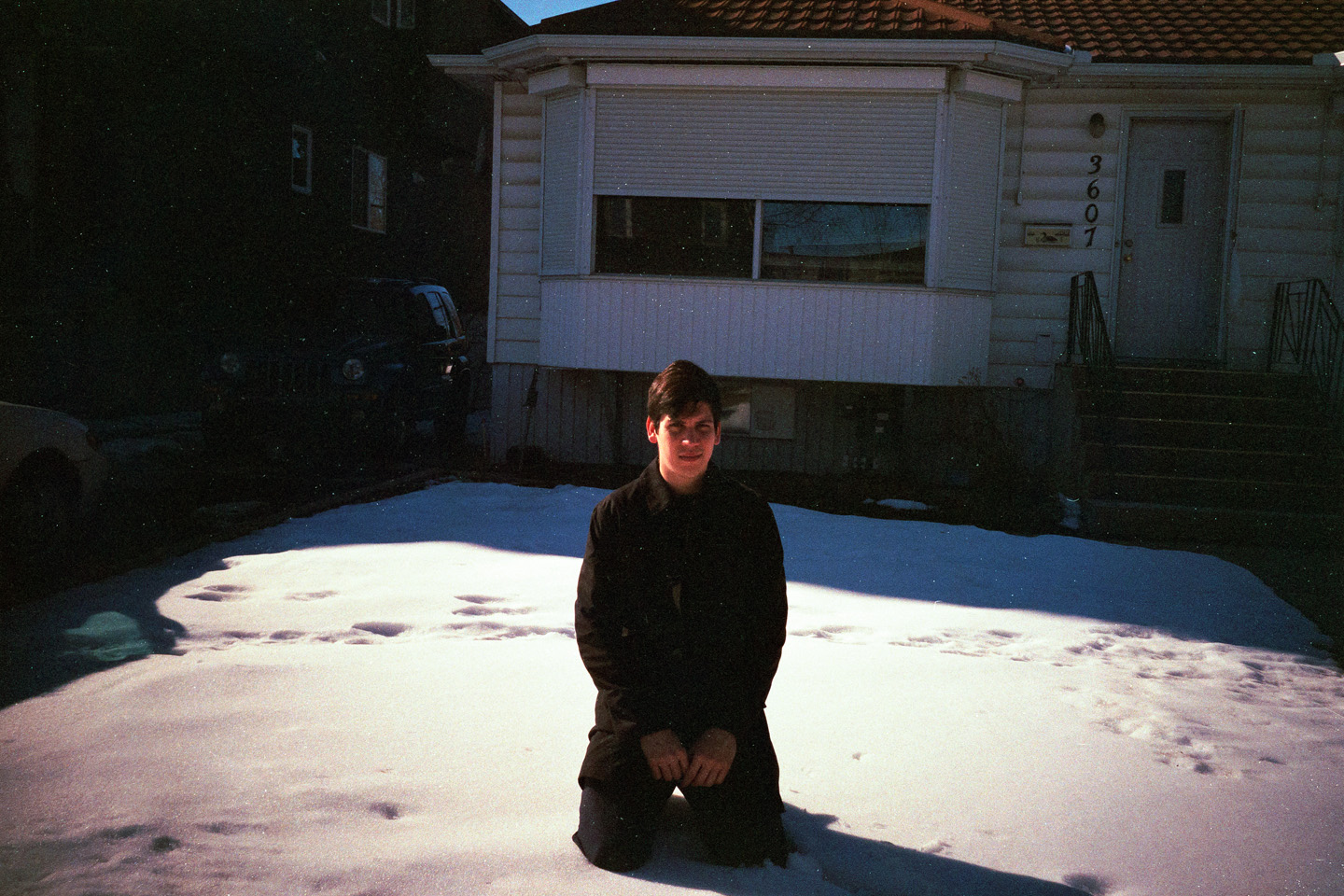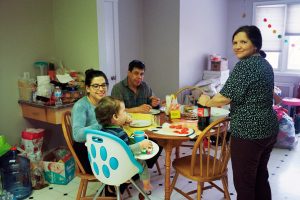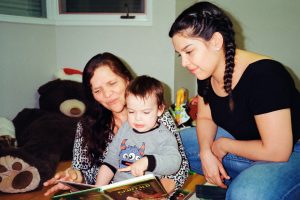An Introduction to (The Melancholy Of) My Family
An Introduction to (The Melancholy Of) My Family (Contest Entry)
Artist Statement
This project examines the detachment of an individual from their migrant family in the country they moved to, the pressure to meet both familial and governmental expectations—and the gap between a migrant’s hopes and their lived reality.
Supper together
We arrived in Canada from Costa Rica in 2008, when I was thirteen. Thrust into grade nine, I struggled to turn childhood English lessons into real-world fluency. I became quieter and more reserved, acutely aware that I didn’t share my classmates’ interests, routines, or clearly mapped futures. My parents had told my sister and me we’d stay only a year or two. That uncertainty, coupled with comparatively oppressive weather and opaque school dynamics, turned each year into sufferance.
Tree near my father’s house
After high school, I drifted through short-term jobs and schooling until I discovered, after travelling, a daily life that finally felt “right” abroad. I moved to Japan seeking a fulfilling life—but doing so meant leaving my family for the first time. In a migrant family, each member is a vital thread: without all of us, the whole unravels. I’d always been the one to bridge gaps, soothe tensions, and keep us connected. What would happen without me?
My father begged me to return, always convinced our unity was essential for survival in Canada. My mother encouraged me to pursue my own happiness, even as she missed me. I oscillated between guilt and relief—was I abandoning them, or finally finding myself?
Three years later, I flew back to Canada. I hadn’t planned a photo project—I simply wanted to preserve their faces—their essences— so I could bring them back to Japan with me. While I was away, my father was finally able to buy a home in Canada, five hours from my sister, where my mother stayed to help care for my nephew – more forced separations due to unavoidable circumstances. Still, they seemed to be doing well, and yet in their silence I felt a persistent melancholy—perhaps a projection of my own guilt and sadness.
Standing between two very different worlds, I faced a stark choice: stay in Japan, flourishing but without my beloved family, or return to Canada, surrounded by them yet suffocated. And with my decision, came the loss of love—separated again by borders and merciless regulations.
A self-portrait outside of my sister’s house
Now, after fifteen years in Canada, I’m stuck in bureaucratic limbo. My permanent-resident renewal has dragged on for two years, most recently dependent on an interview for which the scheduling is being indefinitely prolonged. It’s a reminder that, as an immigrant, you must not only adapt but also profess unwavering devotion to your adopted country—or risk being deemed unworthy.
These photographs and this statement probe migration’s hidden costs: the loss of homeland, the fragmentation of family, the sacrifice of personal dreams, and the tenuous balance between survival and self-fulfillment. What remains of my identity? Costa Rican childhood. Canadian maturity—yet battling for the right to reside. Brief acceptance abroad—followed by forced return. A fleeting sense of contentment—ultimately surrendered.
